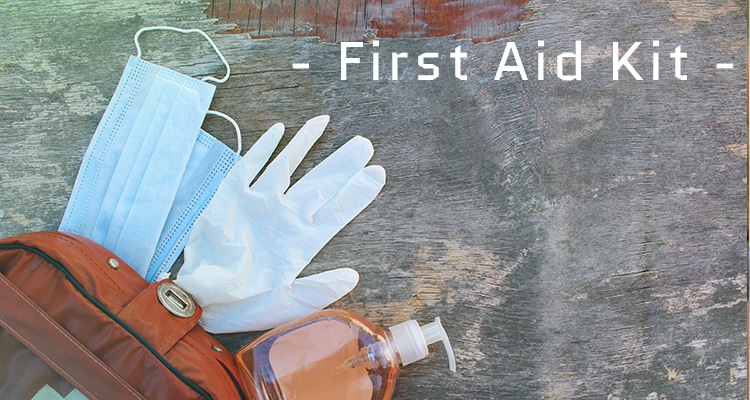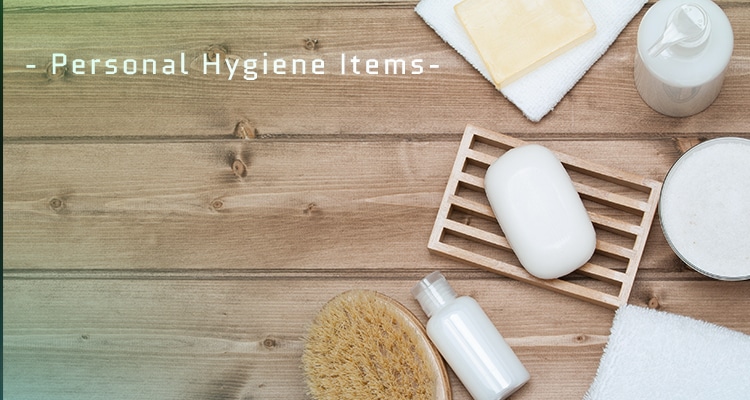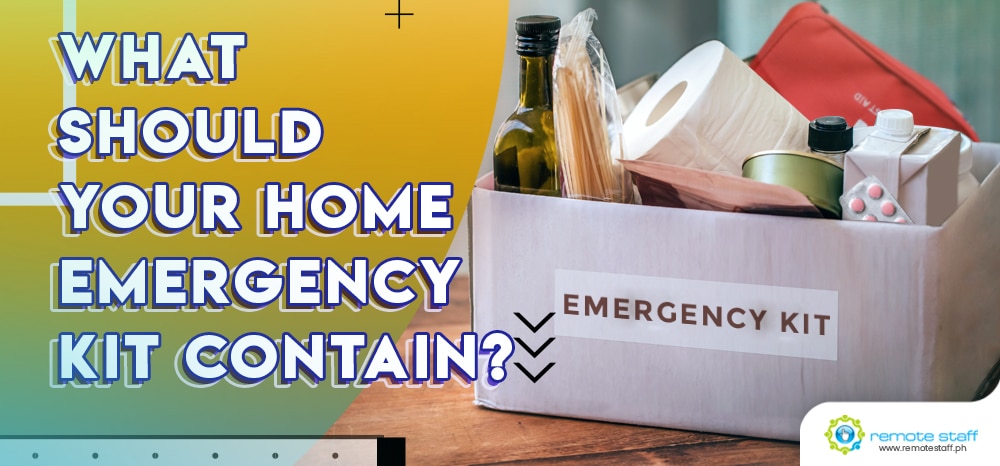A home emergency kit is much like an insurance policy. It’s the one thing you pay for that you hope never to use.
Since a lot of us have been working from home ever since governments all over the world imposed a quarantine, now is as good a time as any to check if our emergency kits at home are still up to date. And if you don’t have one, well, you can build one now.
What Is An Emergency Kit For?

We would define an emergency as a sudden, unexpected, and often dangerous event that requires immediate action. While none of us can accurately predict when the next storm, pandemic, or fire will occur, a bit of preparation can spell the difference between survival and utter catastrophe.
Hence, the emergency kit. When disaster strikes, we can lose access to the things we take for granted in daily life. For instance, a typhoon could mean the loss of electricity and the inability to run to the store to restock supplies. A “shelter-in-place” order due to a pandemic or some form of civil unrest could mean curtailed access to medical services.
And God only knows what you can do in the event of a zombie outbreak.
Thus, your emergency kit should enable you to meet yours and your family’s basic needs for as long as possible, should the unthinkable occur.
The Basics: A Dozen Essentials Each Home Emergency Kit Should Have
First, you need to have some airtight plastic bags ready, as well as a couple of easy-to-carry containers. Two duffel bags would be ideal. These will allow you to grab your emergency kit easily in case you need to make a run for it.
Secondly, you need to assemble the goods. Now, your list of necessities may vary depending on your household’s specific needs, but the following are highly recommended:
- A first aid kit. This should contain adhesive bandages, some antiseptic wipes and/or an iodine solution for cleaning cuts, a roll of gauze, small scissors, rubber gloves, a thermometer, and some safety pins.
- Bottled water. Without water, your chances of surviving for a few days are basically zero. Allot about a gallon per person per day for three days when stocking your kit. This will cover both hydration and sanitation needs.
- Canned goods. As with drinking water, allot a three-day supply for each member of your household. Bear in mind that you might not have a heat source when an emergency strikes, so pick ones that you can eat straight out of the can. Be sure to check the expiration dates too.
- Manual can opener. How else can you open the canned goods, eh?
- Disposable utensils. Again, how else can you eat?
- Whistle. Have one on hand just in case you need to signal for help.
- Flashlight. You never know how long the power will be out when disaster strikes. Do try this out every once in a while to make sure it’s still working too.
- Extra batteries. Replenish these regularly. They will be a godsend when you need to get things working in the absence of electricity.
- Face masks. Hopefully, you already have a steady supply of these by now. Not only do they protect against contagion, but they can also filter contaminated air.
- Candles and matches. Just in case you’ll be stranded for days without electricity. These will serve as your light source at night.
- Personal hygiene items. You probably won’t be able to wash your hair properly in case of an emergency, but sachets of liquid soap are good for a quick clean-up. Feminine items like sanitary napkins should also go into your emergency kit for the same reason.
- A battery-operated radio. When you have neither electricity nor Internet access, this could be your only source of news or updates.

You may also want to include basic medications like paracetamol or ibuprofen, antacids, and anti-diarrhea medication. If you or a family member require daily maintenance or allergy medications, throw those in as well.











Feel free to add any other essentials as you see fit, but see to it that your kit contains all of the items listed above.
Remember, it’s better to have an emergency kit on hand and never need it rather than the opposite. Keep your wits about you, friends.

